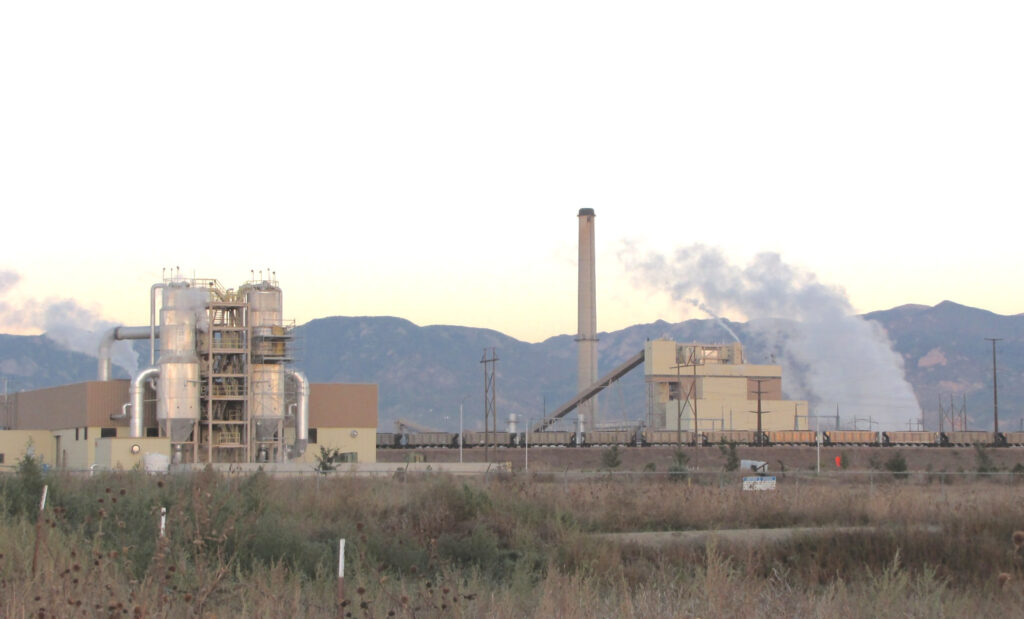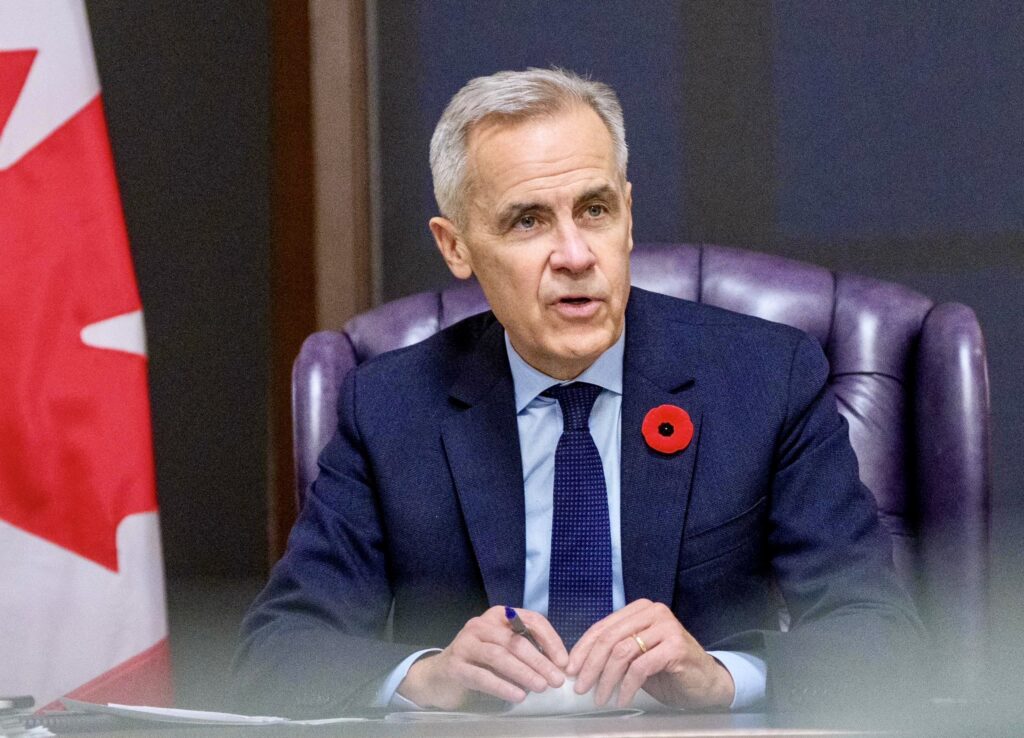It has been four months since the $34 billion expansion of Trans Mountain pipeline finally became operational, realizing the longstanding dream of getting Alberta bitumen to tidewater. This much-hyped milestone was supposed to be a gamechanger for the Alberta patch, ending the reliance on U.S. buyers by accessing new Asian markets with allegedly higher prices.
While it is still early days, the results so far have been a big fat bust. The price discount of Alberta’s Western Canada Select compared to West Texas Intermediate crude actually increased by $3.25 per barrel since TMX came online on May 1.
Subscribe to our newsletter
Stay up to date with DeSmog news and alerts
It is hard to overstate how often politicians and news outlets repeated the narrative that lack of pipeline access to tidewater was the key to unleashing Alberta’s oil economy. For years Canada’s oil sands producers have howled about how lack of pipeline capacity – particularly to markets beyond the U.S. – was costing Alberta’s economy billions in forgone revenues.
Even the widely discredited public inquiry into anti-Alberta energy campaigns was largely predicated on the notion that Canadian environmental groups were somehow being manipulated by nefarious U.S. interests to prevent a pipeline to the Pacific, keeping Canadian oil exports captured at a discount. The Alberta government website on the inquiry still states, “for over a decade, an alleged, well-funded foreign campaign has…sought to landlock our natural resources…and cost Albertans and Canadians thousands of jobs.”
Prime Minister Justin Trudeau’s government capitulated to this so-called crisis and bought the ailing Trans Mountain pipeline expansion project (TMX) in 2018 after Kinder Morgan concluded it was not a wise investment. Originally projected to cost $7.4 billion, the eventual price ballooned to almost five times that amount, about $800 for every man woman and child in Canada. TMX is now the most expensive infrastructure project in Canadian history – over 40 times more than Ottawa invested in renewable energy generation between 2014 and 2020.
No Longer Profitable: PBO
And what did Trudeau get for this generous public intervention on behalf of the Alberta oil patch? In 2019 the United We Roll protest convoy traveled from Red Deer Alberta to Ottawa demanding even more concessions for the oil industry, including some calling for Trudeau to be charged with treason.
Vitriol towards the federal government has since become so normalized that Deputy Prime Minister Chrystia Freeland narrowly avoided a potentially violent confrontation while visiting Grande Prairie city hall in 2022. Almost four in five Albertans now want Trudeau to resign – the highest level of dissatisfaction in the country. Rarely has so much political capital and taxpayers’ money been squandered to achieve so little.
Back in 2022 when the projected TMX price tag totaled a mere $21.4 billion, the Parliamentary Budget Officer concluded the pipeline “no longer continues to be a profitable undertaking.” Eyewatering cost overruns eventually added an additional $12.6 billion burden to the Canadian taxpayer – making TMX perhaps the biggest boondoggle in our nation’s history.
The oil companies filling the expanded Trans Mountain line are now disputing pipeline tolls that do not even cover half of the infrastructure costs. They have launched an appeal to the Canada Energy Regulator to lower the tolls, which would also reduce the market value for potential buyers – benefiting companies using TMX at the expense of the Canadian government.
And what about the mythical Asian markets that were supposed to make Alberta so wealthy? China’s imports of international crude have declined 320,000 barrels per day in the first seven months of 2024 compared to the same period last year. The Chinese economy is not only slowing, the rapid transition to electric vehicles within China indicates that oil imports into the world’s largest economy may now be in permanent decline.
Sales of electric cars and trucks in China exceeded conventional vehicles for the first time in July 2024. The Chinese government is aggressively accelerating this transition by offering generous buybacks for owners swapping older cars for newer EVs. Meanwhile the price of batteries used in EV’s and grid level energy storage have plummeted 50 percent in the last year and half.
Other Asian markets for TMX crude include India and South Korea, but after an initial bump in shipments across the Pacific, deliveries to the Far East were less than half of those made to the U.S. west coast in July.
High Risk, Low Reward
Refineries in California appear now to be the major market for TMX crude, but buyers there are less than enthused by the low quality of Alberta diluted bitumen. Several companies wrote to the Canadian Energy Regulator this year requesting tighter limits on sulfur content, acidity and vapor pressure for oil shipped through Trans Mountain. Chevon warned that Canadian crude had vapor pressures exceeding local regulations that “may prevent Chevron from purchasing or processing crude from [Trans Mountain] for our California refineries.”
Another limiting factor of the TMX pipeline: the largest oil carriers that can squeeze through the narrow Second Narrows channel in Vancouver are comparatively small AFRAmax tankers – with about one quarter the capacity of VLCC ships being loaded on the U.S. Gulf Coast. Shipping low value diluted bitumen across the Pacific ocean is projected to cost over $17 per barrel and take up to 20 days while sending ships to refineries in California takes only three days, undermining the argument for an Asian price bonanza.
Greatly increased tanker traffic in Canada’s busiest port also raises the frightening possibility of an oil spill in the waters surrounding our third largest city. The Westridge terminal of TMX is on the coastal fjord of Burrard Inlet, which ebbs and flows daily on a tidal current of up to five knots through the Second Narrows channel. AFRAmax tankers cannot even be loaded to full capacity to avoid running aground while transiting this treacherously tight and shallow waterway during short windows of high slack water. What could go wrong?
If a serious accident involving diluted bitumen occurred, much of the emergency oil spill recovery equipment available may prove ineffective since they are primarily designed to recover floating conventional oil. A major spill of diluted bitumen from a ruptured pipeline in the Kalamazoo River became the most expensive freshwater recovery in U.S. history because the mixture of bitumen and solvents separated, vastly complicating cleanup efforts. The bitumen portion sank, making oil-skimming equipment largely useless. Meanwhile the chemicals used to dilute bitumen evaporated into a toxic cloud, sickening local residents.
If anything like that happened within the confined airshed of Vancouver, it would be a public health disaster. According to estimates based on Transport Canada documents, 25,000 people would need immediate evacuation if less than 0.5 percent of a 600,000 barrel cargo from an AFRAmax spill washed up on local shorelines. Put another way, local sales of “I love Alberta oil” hoodies might be very slow after such a catastrophe.
History will reveal the ultimate cost and consequences of the expanded Trans Mountain pipeline. The supposed economic benefits so far seem negligible and will likely deteriorate further as the global economy decarbonizes. The other costs associated with accelerating our climate emergency, the risk of an oil spill in Canada’s busiest port, and towering taxpayer liabilities have yet to be reckoned with.
Subscribe to our newsletter
Stay up to date with DeSmog news and alerts






